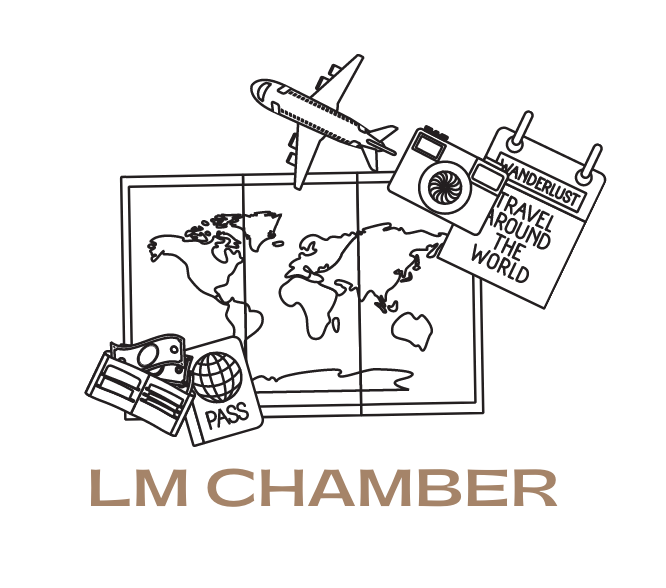
How to Save Money on Your Next Vacation: Smart Tips for Budget Travelers
Planning a vacation can often feel like an expensive endeavor, but with the right strategies, significant savings are possible. By prioritizing budget-friendly accommodations, utilizing travel deals, and embracing local dining options, travelers can greatly reduce their overall costs. These simple adjustments can make a considerable difference in a traveler’s experience and budget.
In addition to cutting costs on lodging and meals, it is essential to consider timing and destination. Traveling during the off-peak season or to less popular locations can lead to lower prices on everything from flights to attractions. This not only enhances the travel experience but also allows for a more immersive feel of the destination without the crowds.
Finally, setting a clear budget and sticking to it can prevent overspending. Tracking expenses while traveling ensures accountability and helps maintain financial discipline. Implementing these tips allows for a refreshing getaway without breaking the bank.
Set Smart Vacation Savings Goals
Establishing clear savings goals is essential for a successful vacation plan. This involves determining a realistic budget, creating a dedicated savings account, and scheduling regular contributions to ensure the goal is met.
Determine Your Vacation Budget
First, identifying how much the vacation will cost is crucial. This includes travel expenses, accommodations, food, activities, and souvenirs. He or she should research average costs for their destination to get a better idea.
A helpful approach is to list down all potential expenses. Breaking this down into categories allows for a more organized overview. For instance:
- Travel: Flights, gas, or transportation
- Accommodation: Hotels, rentals, or camping fees
- Food: Restaurants, groceries, or snacks
- Activities: Tours, entrance fees, or local experiences
After estimating total costs, it’s important to add a buffer for unexpected expenses. This ensures the budget remains realistic and manageable.
Open a Dedicated Vacation Savings Account
Next, setting up a separate vacation savings account can simplify the savings process. This account can be a high-yield savings account, which typically offers better interest rates. This increases the savings over time compared to a regular account.
By isolating funds for vacation, it becomes easier to track progress toward the savings goal. He or she should look for accounts with low fees and convenient access.
Utilizing digital banking tools can also aid in monitoring savings. Some banks offer features that highlight savings milestones, reinforcing commitment to the goal.
Schedule Automatic Transfers
Finally, setting up automatic transfers is an effective way to consistently contribute to vacation savings. By scheduling these transfers, he or she ensures that a predetermined amount moves from checking to savings regularly.
Choosing a specific day each month can help build a routine. It could be right after paydays or at the beginning of the month. This practice eliminates the temptation to spend the money elsewhere.
Even small amounts can add up over time. For example, transferring $50 a week compounds to $2,600 annually. This method aligns with concepts like sinking funds, allowing for a systematic approach to achieving vacation goals.
Maximize Savings for Your Trip
Finding ways to save money during travel can significantly enhance the experience and make trips more enjoyable. By focusing on accommodations, airfare, credit card rewards, and loyalty programs, travelers can effectively reduce their expenses.
Find Discounts and Deals on Accommodations
Travelers can secure significant savings by seeking discounts on accommodations. Websites like Booking.com and Expedia often feature sales and last-minute deals. If you’re planning to visit bustling business districts or vibrant urban centers like Ortigas (or elsewhere), finding a hotel in ortigas through these platforms can unlock special offers and competitive rates.
Airbnb can offer lower prices compared to traditional hotels, especially for longer stays. Hostels also provide budget-friendly options, particularly for solo travelers or groups.
Utilizing promotion codes or loyalty discounts can lead to even greater savings. Signing up for newsletters from accommodation providers will inform travelers of exclusive deals directly in their inboxes.
Book Cheap Flights and Save on Airfare
Airfare can be one of the highest costs of travel. To mitigate this, using fare comparison tools like Google Flights or Skyscanner can help identify the lowest prices.
Booking flights in advance typically leads to better deals. Being flexible with travel dates can also unlock lower fares.
Consider budget airlines that offer competitive pricing, but be aware of additional fees. Setting price alerts can notify travelers of drops in flight prices, ensuring they secure the best possible fare.
Use Cashback and Travel Rewards Credit Cards
Travel rewards credit cards provide a strategic way to earn points for future travel. Cards offering cashback on purchases can also contribute to overall trip savings.
Travelers should choose cards with no foreign transaction fees to further increase savings while abroad.
It’s wise to understand the terms attached to rewards, such as bonus points for specific categories like dining or travel. This ensures travelers maximize their earnings effectively while managing their spending.
Leverage Loyalty Programs for Extra Value
Many hotels and airlines offer loyalty programs that reward frequent travelers with perks. Signing up for these programs can yield discounts, free nights, or upgrades that enhance the travel experience.
Frequent flyer miles can accumulate quickly, allowing for free flights or reduced costs on high-priced tickets.
Travelers should always provide their loyalty number when booking to ensure they earn points. Monitoring balance and available rewards can help in planning future trips to maximize the benefits of these programs.
Cut Travel Expenses While on Vacation
Travelers can effectively manage their vacation costs by choosing budget-friendly transportation, discovering free attractions, and taking advantage of free walking tours. Each of these strategies not only reduces expenses but also enhances the overall travel experience.
Use Budget-Friendly Transportation Options
Selecting economical transportation is crucial for lowering vacation costs. Public transit, such as buses or subways, offers an affordable way to navigate cities. Using travel apps can reveal real-time schedules and fares.
Renting a bicycle can be another economical option, allowing easy access to local sites. In some cases, rideshare services provide competitive rates, especially for groups. Planning ahead and booking transportation in advance can often lead to discounts, making it even easier to save.
Seek Out Free Attractions and Activities
Many destinations boast free attractions that enrich the travel experience without straining the budget. Parks, beaches, and historic sites often charge no entrance fee and provide ample opportunities for exploration.
Local festivals and cultural events may also offer free admission. Budget travelers should research specific events in their chosen destination. Libraries or visitor centers can be valuable sources of information for local activities, enhancing the travel experience without adding costs.
Consider Free Walking Tours
Free walking tours are an excellent option for budget travelers seeking unique insights into a destination. These tours are often led by knowledgeable locals or enthusiastic volunteers, offering perspectives that guidebooks may overlook.
While the tours are free, tipping the guide is a common practice. This encourages excellent service and supports local culture. Many cities have a variety of walking tours focusing on history, architecture, or food, all without a cost, helping to maximize the value of the trip.
Boost Your Vacation Fund
There are several effective strategies to enhance a vacation fund. Focusing on earning extra income and reducing unnecessary expenses can significantly contribute to savings. Here are some approaches worth considering.
Start a Side Hustle or Side Job
Many individuals find success in starting a side hustle or taking on a part-time job. This allows them to earn extra cash that can be directly allocated to their travel fund. Options include freelance work, tutoring, or selling handmade goods online.
Popular Side Hustles:
- Freelancing in writing, graphic design, or web development
- Driving for rideshare services
- Selling items on platforms like Etsy or Amazon
Having a clear schedule will help balance this extra workload. Setting specific financial goals, such as saving a certain amount each month, can keep motivation high.
Declutter and Sell Your Stuff
Selling unused items is another practical way to boost savings. Individuals can declutter their homes and turn unnecessary belongings into cash. This approach not only generates additional funds but also creates a more organized living space.
Steps for Selling:
- Identify items no longer needed—clothes, electronics, furniture.
- Use platforms like eBay, Facebook Marketplace, or local consignment shops.
- Set competitive prices to attract buyers quickly.
By actively selling items, individuals can contribute significantly to their travel fund while enjoying the benefits of a tidier home.
Review Travel Insurance Options
Choosing the right travel insurance can save money in the long run. Travelers often overlook this essential aspect, but it is crucial for protecting against unexpected events. Evaluating various policies helps ensure coverage that fits the needs without overspending.
Key Considerations:
- Compare different providers for pricing and coverage.
- Look for policies that include trip cancellations, medical emergencies, and lost luggage.
- Assess customer reviews to gauge reliability.
By selecting an appropriate travel insurance plan, travelers can avoid costly out-of-pocket expenses, making their vacation budget stretch further.





